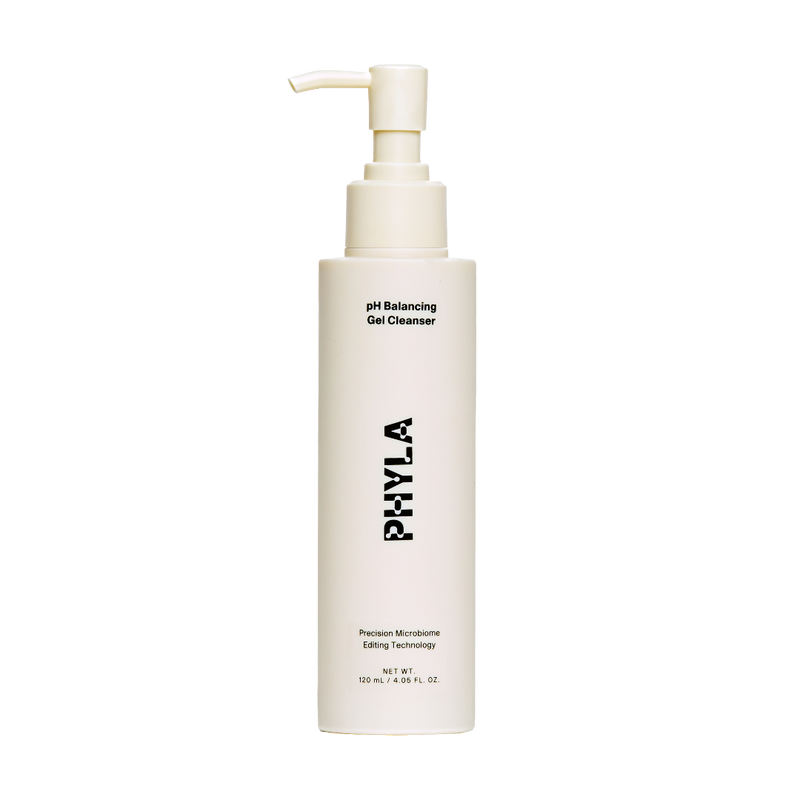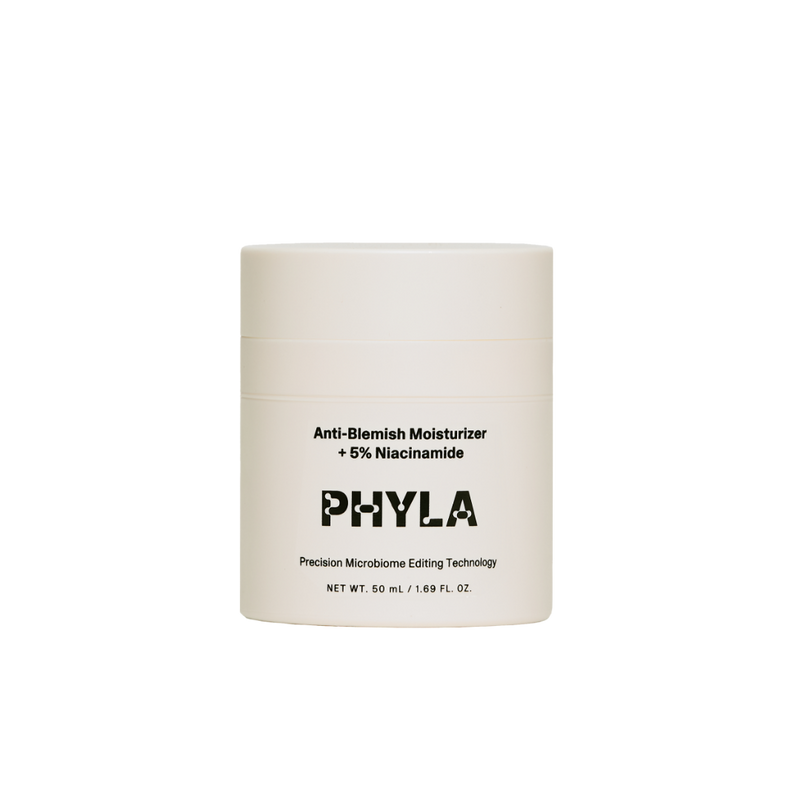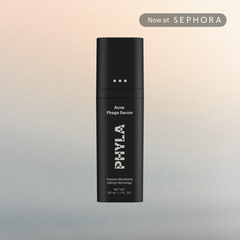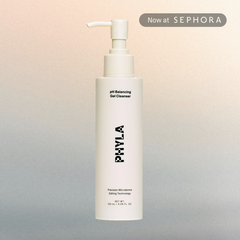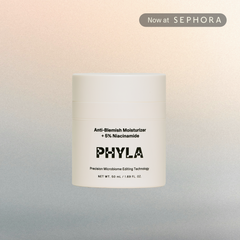Best Skincare for Sensitive Skin
Learn everything you need to know around the best skincare for sensitive skin, and how to fashion a routine that’s tailored to you.

Sensitive skin can be frustrating. Some may feel as though almost everything triggers a reaction, while others may find themselves sensitive to only certain things. Every person is unique, with different skin types and varying degrees of reaction to potential triggers.
That can make creating a successful skincare routine for sensitive skin challenging, to say the least. However, knowledge is power, so keep reading to power up and use that knowledge to fashion the perfect skincare routine, tailored just for you.
What Causes Sensitive Skin?
There can be multiple triggers for sensitive skin. Even more bizarre is that sometimes you may react negatively to something, and then months later be exposed to the same trigger and suffer no reaction at all. Some of the different causes of sensitive skin may include:
-
Underlying Factors—sensitive skin can sometimes be the consequence of an underlying health condition. These conditions commonly include eczema, dermatitis, rosacea, and psoriasis.
-
Environmental Factors—our environment is full of pollution and contaminants that can inflame and irritate sensitive skin. Additionally, harsh, cold winds and hot, dry summers can also affect your skin, making it oily or dry, and of course—sensitive.
- Skincare Products—unfortunately, your skin can be allergic to certain skincare ingredients, often found in your favorite skin care products. Skin care products with harsh or chemical ingredients in particular can trigger reactions and stir up underlying conditions of the skin.
Best Skincare Ingredients for Sensitive Skin
Regardless of what skincare ingredients you choose to use, all of your skincare products for sensitive skin should be labeled as hypoallergenic, non-drying, non-irritating, and generally soothing to the skin. Look for products with ingredients like:
Ceramides
Ceramides are a type of fatty acid that occurs naturally in the skin, called lipids. They make up about 50% of the epidermal layer. Ceramides have a lot of potential health benefits for your skin, especially if you have sensitive skin.
Although your skin is naturally made up of ceramides, the amount decreases over time, resulting in skin that looks dry and dull. That’s why the external application of ceramides is so important.
When applied to your skin topically, they help form a protective barrier on its surface that prevents permeability and locks in moisture. Additionally, sensitive skin is more prone to dryness and inflammation. Fortunately, ceramides help to keep that dryness and irritation at bay!
Hyaluronic Acid
Hyaluronic acid is a naturally produced, clear, sticky substance in the body. It is found in high concentration in the skin, eyes, and connective tissues. The main function of hyaluronic acid is to retain water in the tissues to keep them moisturized and lubricated.
Lack of moisture in sensitive skin can trigger a whole lot of issues including dullness, dry patches, uneven skin tones, unwelcome textures, and fine lines. Applying hyaluronic acid to the skin can be very beneficial and can help maintain hydration levels in your skin by working as a humectant, drawing moisture in.
Vitamin C
Vitamin C is often considered a miracle skincare ingredient. It works to bring out that youthful glow in your complexion, and may help to heal blemishes and scars, level out uneven skin tones, lighten up hyperpigmentation, and may even reduce the appearance of fine lines.
Vitamin C can also help to eliminate irritation and inflammation in the skin, keeping it hydrated, promoting collagen production, and protecting it against oxidative damage. Sensitive skin can really gain a lot of benefit from regular vitamin C usage, and the nice part is that it can safely be used in concentrations of up to 10%.
Squalane
Squalane is a moisturizing agent that mimics natural oils in the skin. It works as an excellent emollient, and can significantly boost your skin’s hydration. Squalane is rich in antioxidants that fights against skin damage and free radicals, and also has antitumor properties that help protect the skin from carcinogens. It also has anti-inflammatory properties that soothe a variety of skin problems like inflammatory acne, eczema, psoriasis, rosacea, and dermatitis. This fact alone makes it ideal for use by people with sensitive skin.
Lactic Acid
Lactic acid is an organic acid. It’s formed naturally in the body when the body breaks down carbohydrates for energy. In skincare, it’s used to treat age spots, hyperpigmentation, and other skin issues. Lactic acid brightens the skin, making it look smooth and even while also appearing taut and firm. It works by exfoliating the skin and loosening the bonds between dead skin cells to reveal a radiant and glowing complexion. However, lactic acid is gentle enough to be considered an optimal option for those with sensitive skin.
Colloidal Oatmeal
Colloidal oatmeal acts as an emollient moisturizer to your skin, adding hydration to it. It also keeps your skin soft, reduces irritation and prevents itching. Oatmeal has soothing anti-inflammatory properties, and provides relief to irritated, red, cracked, and dry skin. All of these qualities make it an excellent choice for use on sensitive skin.
Aloe Vera
Aloe Vera has been used as a herbal remedy for centuries. The gel part of the plant is known to heal the skin from a variety of skin concerns, like sunburn, minor cuts, and small abrasions.
Aloe vera gel is also ideal to use on sensitive skin. It absorbs into your skin easily and helps to seal moisture inside. The moisturizing effects of the gel help alleviate dryness and itchiness, and reduce inflammation. This makes it an excellent skincare ingredient for people with eczema, psoriasis, and similar conditions.
Mineral Sunscreen
When it comes to SPF, mineral sunscreens are the way to go for sensitive skin. They rely on either zinc or titanium oxide, or both to block UV light. They are also called physical sunscreens, as they physically block the UV rays. Mineral sunscreens are much less likely to irritate sensitive skin, which makes them a popular ingredient in sensitive skincare products.
Probiotics
Recent research shows that using probiotics in topical form or pill form may help with a lot of skin problems. These problems include:
- Dry and patchy skin
- Damage caused by UV exposure
- Eczema
- Acne
- And it may even help delay the onset of the visible signs of aging!
Skincare Ingredients to Avoid for Sensitive Skin
While there are many ingredients that are suitable for sensitive skin, it seems like there are just as many, if not more that are not suitable for sensitive skin. A few of the big ones to avoid include:
Sulphates
Sulphates are the ingredients that create the foam and lather in skincare products. They are commonly included in face and body washes, shampoos, and toothpastes. Ammonium lauryl sulphate and sodium lauryl sulphate are the most commonly used that are known to cause irritation.
Fragrance
Many skincare products contain fragrance to mask the chemical scents of the other ingredients. Even if the fragrances are natural, they can still irritate sensitive skin, due to the harsh chemicals contained inside the scent.
Chemical Sunscreens
Chemical sunscreens contain a variety of chemicals that absorb UV light and release it as heat in the form of a chemical reaction. They contain more chemicals than mineral sunscreens, making them more likely to inflame and irritate your skin.
Harsh Exfoliants
Exfoliants that are too abrasive can easily inflame and irritate your skin even if you’re not particularly sensitive. Although exfoliating is necessary to remove dead skin cells, it is essential to make sure they aren’t too harsh, whether you opt for chemical or physical exfoliators. Physical exfoliators containing microbeads, apricot, or walnut kernels can cause micro-tears in the skin. Meanwhile, chemical exfoliators like acids can dry out your skin, leading to cracks and inflammation.
Alcohol
Skincare products containing Alcohol commonly work as astringents. This means that they are designed to dry out the skin, and unfortunately, this means they can also adversely affect the natural healing process of your skin. In other words, use sparingly and if you suffer from sensitive skin, skip this one entirely.
The best skincare for sensitive skin is really those products you will use regularly and consistently, that don’t negatively affect your skin. However, if you don’t commit to keeping a daily skincare routine, you’re really not reaping the most benefits you could be from your skincare products. If you’re going to invest money in them, you may as well use them as effectively as you can. Sensitive skin especially deserves all the love and pampering you have to spare!


